第79章 MONEY OR SIMPLE CIRCULATION(60)
Misled by the apparent ingenuousness of Adam Smith,who had studied Hume and Steuart closely,honest Maclaren observes:"The theory of the dependence of prices on the extent of the currency had not,as yet,attracted attention;and Dr.Smith,like Mr.Locke"(Locke's views vary),"considers metallic money nothing but a commodity."Maclaren,Op.Cit.,p.44[10.]David Ricardo,The High Price of Bullion,a Proof of the Depreciation of Bank-notes ,4th Edition,London,1811(the first edition was published in 1809).Also:Reply to Mr.Bosanquet's Practical Observations on the Report of the Bullion Committee ,London,1811[11.]David Ricardo,On the Principles of Political Economy and Taxation ,p.77."The same general rule which regulates the value of raw produce and manufactured commodities,is applicable also to the metals,their value depending ...on the total quantity of labour necessary to obtain the metal,and to bring it to market."[12.]Ricardo,op.cit.,p.421."The quantity of money that can be employed in a country must depend on its value:if gold alone were employed for the circulation of commodities,a quantity would be required,one fifteenth only of what would be necessary,if silver were made use of for the same purpose."See also Ricardo,Proposals for an Economical and Secure Currency ,London,1816,p.8,where he writes:"The quantity of metal for which paper money is the substitute,if paper money be partly or wholly used,must depend on three things:first,on its value;--secondly,on the amount or value of the payments to be made;--and,thirdly,on the degree of economy practised in effecting those payments."[13.]Ricardo,Principles of Political Economy ,pp.432,433[14.]David Ricardo,Reply to Mr.Bosanquet's Practical Observations ,p.49."That commodities would rise or fall in price,in proportion to the increase or diminution of money,I assume as a fact which is incontrovertible."[15.]Ricardo,The High Price of Bullion."Money would have the same value in all countries"(p.4).Ricardo has qualified this proposition in his Principles of Political Economy ,but not so as to be of any importance in this context.
[16.]Ricardo,op.cit.,pp.11,12.
[17.]"The exportation of the coin is caused by its cheapness,and is not the effect,but the cause of an unfavourable balance'(op.cit.,p.14).
[18.]Ricardo,op.cit.,pp.74,75."England,in consequence of a bad harvest,would come under the case of a country having been deprived of a part of its commodities,and,therefore,requiring a diminished amount of circulating medium.The currency which was before equal to her payments would now become superabundant and relatively cheap,in proportion ...of her diminished production;the exportation of this sum,therefore,would restore the value of her currency to the value of the currencies of other countries."His confusion of money and commodities and of money and specie appears in a quite ridiculous form in the following passage."If we can suppose that after an unfavourable harvest,when England has occasion for an unusual importation of corn,another nation is possessed of a superabundance of that article,but has no wants for any commodity whatever,it would unquestionably follow that such a nation would not export its corn in exchange for commodities:but neither would it export corn for money ,as that is a commodity which no nation-ever wants absolutely,but relatively"(I.C.,p.75).In his epic poem Pushkin relates that the father of his hero fails to grasp that commodities are money.But that the Russians long ago grasped that money is a commodity is demonstrated not only by the English corn imports from 1838to 1842,but also by the whole history of their trade.
[19.]Cf.Thomas Tooke,History of Prices ,and James Wilson,Capital,Currency and Banking .(The latter is a reprint of a series of articles published in the London Economist in 1844,1845and 1847.)[20.]James Deacon Hume,Letters on the Corn Laws ,London,1834.pp.29-31[21.]James Mill,Elements of Political Economy .[Marx used the French translation by Parisot published in Paris in 1823.]
[22.]James Mill,op.cit.,Paris,1823,pp.128-36passim.(Elements of Political Economy ,London,1821,pp.95-101passim .)[23.]Investigation into the operation of the Bank Acts of 1844and 1845was conducted by a Committee of the House of Commons a few months before the onset of the general commercial crisis of 1857.In his evidence to the Committee,Lord Overstone,the theoretical father of these Acts,gave vent to the following piece of boasting:"By strict and prompt adherence to the principles of the Act of 1844,everything has passed off with regularity and ease;the monetary system is safe and unshaken,the prosperity of the country is undisputed,the public confidence in the wisdom of the Act of 1844is daily gaining strength;and if the Committee wish for further practical illustration of the soundness of the principles on which it rests,or of the beneficial results which it has assured,the true and sufficient answer to the Committee is,look around you;look at the present state of trade of the country,look at the contentment of the people;look at the wealth and prosperity which pervades every class of the community;and then,having done so,the Committee may be fairly called upon to decide whether they will interfere with the continuance of an Act under which these results have been developed."Thus did Overetone blow his own trumpet on July 14,1857,and on November 12of the same year the miraculous Act of 1844had to be suspended by the Cabinet on its own responsibility.
[24.]Tooke's principal work --apart from the History of Prices ,which was published in six volumes by his collaborator Newmarch --is An Inquiry into the Currency Principle,the Connection of Currency with Prices...2nd Ed.,London,1844.
[25.]"We ought to ...distinguish ...between gold considered as merchandise,i.e.,as capital,and gold considered as currency."(Thomas Tooke,An Inquiry into the Currency Principle ,p.10)."Gold and silver ...may be counted upon to realise on their arrival nearly the exact sum required to be provided....Gold and silver possess an infinite advantage over all other deion of merchandise ...from the circumstance of ...being universally in use as money....It is not in tea,coffee,sugar,or Indigo that debts,whether foreign or domestic,are usually contracted to be paid,but in coin;and the remittance,therefore,either in the identical coin designated,or in bullion which can be promptly turned into that coin through the Mint or market of the country to which it is sent,must always afford to the remitter the most certain,immediate,and accurate means of effecting this object,without risk of disappointment from the failure of demand or fluctuation of price"(John Fullarton,op.cit.pp 132,133)."Any other article"(apart from gold and silver)"might in quantity or kind be beyond the usual demand in the country to which it is sent."(Tooke,An Inquiry....[p.10]).
[26.]The conversion of money into capital will be examined in Chapter Three,which deals with capital and concludes the first section of this work.